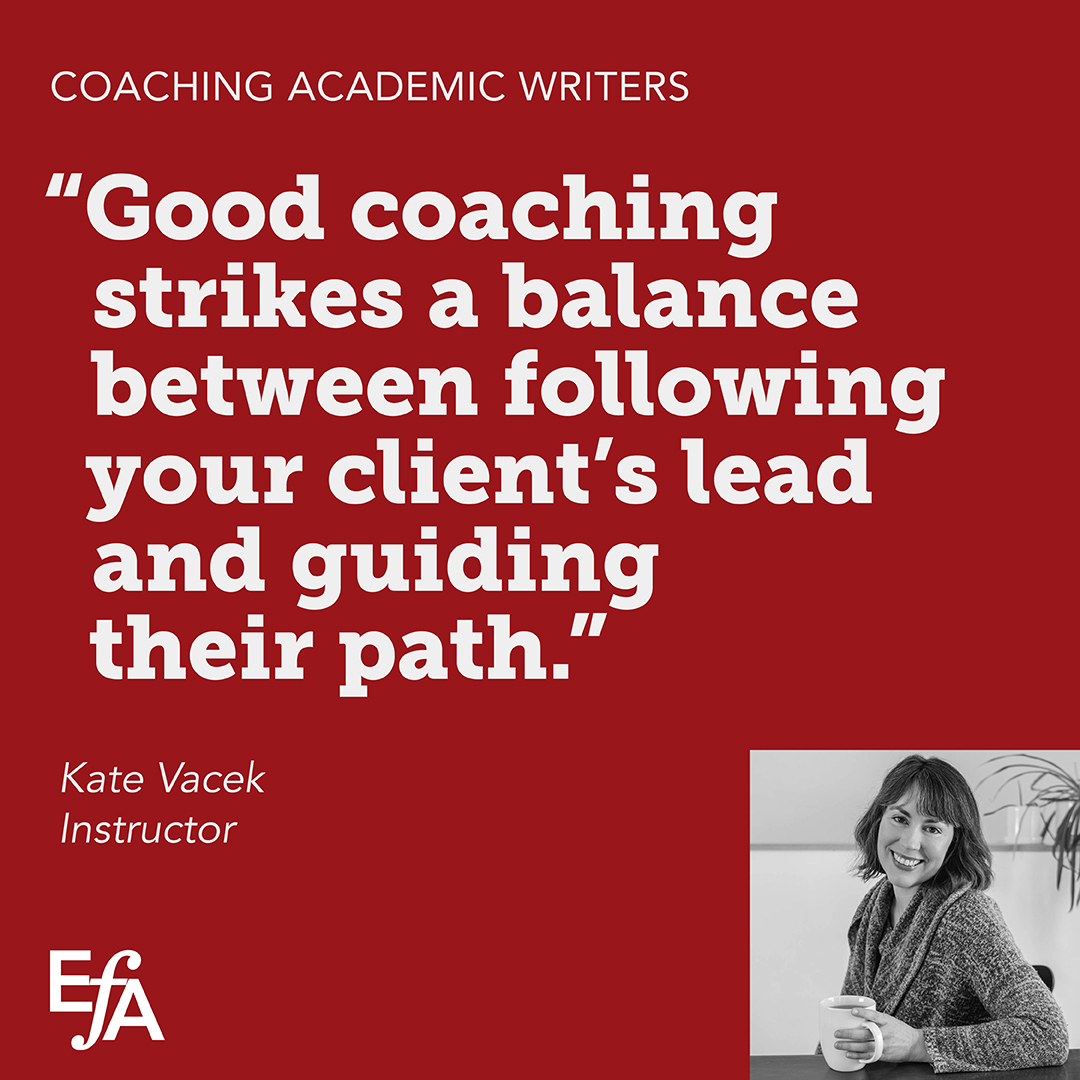Description
Self-paced courses are undertaken by the student at their own pace. No instructor feedback is given, although models are provided in the lessons. All self-paced courses include at least one live Q&A session, held via Zoom. Students will have 365 days to access the course material. To extend access by 3 to 12 months from the initial access end date, email the education coordinator. More information about how our classes are conducted is available here.
After placing your order, your course will be added to your personal course library on our education site. That site has different login information from the main EFA site. Please check your email for information on how to access the course.
Access to course materials will begin on September 25, 2024.
Academic writing is hard. Many graduate students, faculty, and other researchers long for support as they seek to complete their degrees, achieve tenure, or advance their research agendas. They may reach out to an editor when they are looking for support with the writing process, research design, project management, or emotional overwhelm.
A sound coaching relationship can help an academic writer connect with their values, develop sustainable research and writing practices, and accomplish long-term goals. Academic writers may not even know coaching exists, but when they find the right coach, their work comes into focus and their motivation skyrockets.
You may have found yourself coaching your editing clients without even setting out to do so. If you coach academic writers—or want to get started coaching—how do you know if you’re doing it well?
This self-paced course is geared toward academic editors who have earned advanced degrees and produced their own academic genres. The course will show you how to leverage your own experience and teach you the core techniques of coaching: those moves you make to guide a writer to make informed choices and keep moving forward. Picking up where “Introduction to Coaching Academic Writers” leaves off, this course is your opportunity to envision your own coaching practice and further develop your listening and guiding capabilities. You’ll learn to apply these skills in four focus areas, give written feedback, set ethical boundaries, and run your coaching business. A variety of exercises will prompt you to practice your skills, reflect on your values and strengths, and develop your knowledge and confidence.
Whether you’re hoping to offer coaching as your primary service or adding it to your repertoire, at the end of this course, you’ll have a solid foundation for coaching academic writers to achieve their goals.
This course is appropriate for those who already have formal training in copyediting and/or intermediate-level experience. A science background is not essential for this introductory course.
Kate Vacek (she/her) owns Compass Academic Coaching, which serves graduate students, professors, and other researchers as they pursue their degrees, tenure, and research agendas. She has a PhD in English Composition and Teaching English to Speakers of Other Languages (TESOL) from Indiana University of Pennsylvania.



